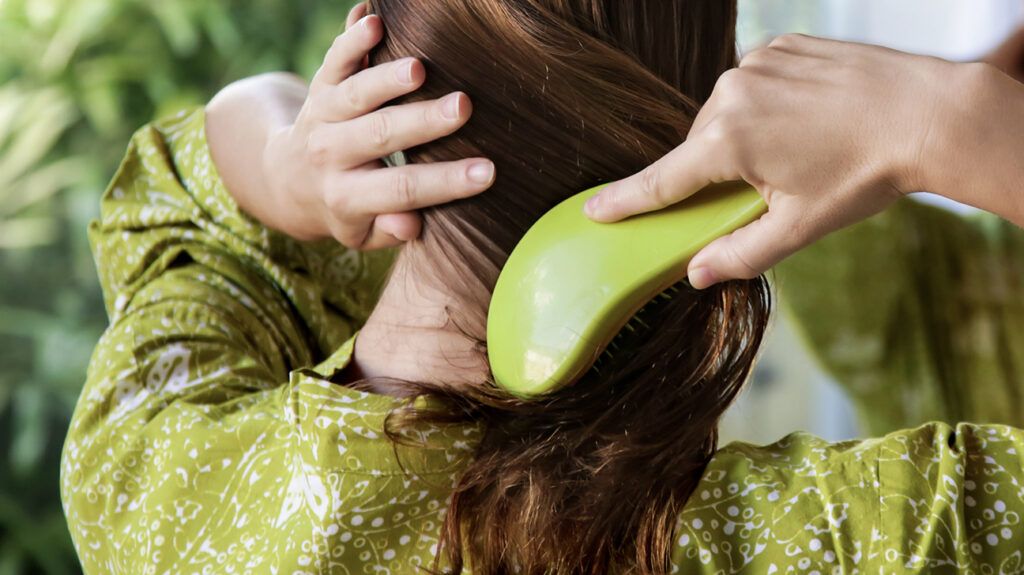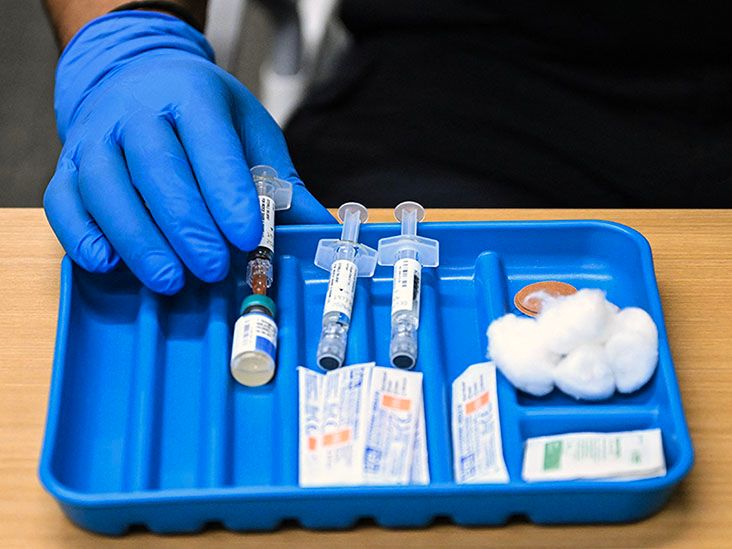Hair loss may occur in people with ulcerative colitis (UC). This may be due to various factors, such as the condition itself, side effects from medications, stress, or vitamin deficiencies.
Ulcerative colitis (UC) is a form of inflammatory bowel disease (IBD). It causes ulcers on the colon lining, producing mucus and bleeding. This triggers symptoms including diarrhea, abdominal pain, and blood in stool.
In this article, we will explain whether UC causes hair loss, specific causes, and if it is reversible. We will also explore the treatments and whether it is possible to prevent the condition.

Some people with UC experience hair loss. Sometimes, this may be a direct result of UC itself.
According to an older
One of these manifestations can be skin or hair symptoms, such as hair loss. A
However, there are a number of factors that could play a role in hair loss for those with UC.
There are several ways UC could directly or indirectly lead to hair loss.
Immune system response
IBD is an autoimmune condition. It occurs when the immune system attacks functioning cells in the intestine. Sometimes, though, this autoimmune activity may affect other parts of the body.
Researchers from 2021 reported that alopecia areata, a type of immune-mediated hair loss, may develop in people with IBD. The researchers suggest that both conditions share a similar genetic pathway, which may lead to a person developing both.
Side effects of medication
In a
This may be because medications that dampen the immune system or reduce inflammation can reduce the effects of UC on the hair.
However, certain medications may also cause hair loss as a side effect. For example, the Crohn’s and Colitis Foundation lists hair loss as one of the side effects of methotrexate. Giving folic acid alongside methotrexate may prevent this.
Doctors will monitor all possible side effects of medications during UC treatment.
Read more about drugs that cause hair loss.
Stress response
Research from 2017 found that around 30% of people recently diagnosed with IBD experienced anxiety or depression as a result of the distress caused by the diagnosis or condition.
Sometimes, stress can lead to a type of hair loss known as telogen effluvium. This is when a person sheds more hair than usual in response to a shock or traumatic event, resulting in thinner patches or hair loss.
An
Vitamin deficiencies
UC can affect the body’s ability to digest food and absorb the nutrients. This can lead to vitamin deficiencies, malnutrition, or weight loss. Any of these factors could lead to hair loss.
A
Having too much vitamin A could also cause hair loss.
Anecdotally, people report that hair loss in those with UC tends to be temporary. Hair may begin growing back once a person addresses any underlying causes, such as stress, nutrition, or finding UC treatments that work for them.
However, if a person has alopecia areata, the outlook may be different. There is
Treatment for UC-related hair loss may vary depending on the cause, as well as the severity and a person’s own preferences. Some people choose not to treat hair loss, while for others, this symptom is distressing.
Those who want to treat their hair loss may be able to work with a doctor to find the potential cause and begin addressing it. This could involve:
- beginning or adjusting medications for UC
- testing for nutritional deficiencies and trying dietary changes or supplements
- getting support for stress, anxiety, or depression
Some people may find that their hair begins growing back over time. For others, doctors may suggest specific hair loss treatments, such as:
- topical minoxidil, which is available over the counter
- laser therapy
- microneedling
- corticosteriod injections
- finasteride or spironolactone (Aldactone) medications
There is limited research on how these hair loss treatments affect people with UC specifically. A person must consult a doctor before trialling any of them.
If a person has vitamin or mineral deficiencies, then yes, taking supplements may help.
The
- iron
- vitamin D
- biotin
Evidence supporting the supplementation of other nutrients has more mixed results or is not of high quality. More research with larger numbers of participants is necessary.
The Food and Drug Administration (FDA) does not regulate dietary supplements in the same way as medications. For this reason, people should consult a doctor before trying supplements and choose only high quality products that a third party has tested for safety.
People with difficulty absorbing nutrients in the digestive tract may benefit from supplements that they can absorb in the mouth, such as sprays or sublingual tablets, or from injections.
Hair loss can be upsetting for some and may affect a person’s self-esteem. Living with UC as a chronic condition can also be challenging. People who feel anxious or alone in this may benefit from finding support groups and other resources to aid their mental health.
Some places to look include:
- the Crohn’s & Colitis Foundation, which offers nationwide support groups for people with IBD
- the American Hair Loss Association, which provides support for those who have experienced hair loss
- Girls with Guts, which supports women and girls with IBD
Find more UC support groups, or learn more about IBD from our dedicated hub.
It may be possible to prevent hair loss from UC in some people. Some things that may help include:
Medications
An
However, whether medication helps may depend on the specific drug, and not all UC drugs are suitable for everyone.
For example,
Hair care
To an extent, people may be able to slow or reduce hair loss by caring for their hair. The American Academy of Dermatology (AAD) recommends:
- using gentle shampoo and conditioner
- wrapping the hair to soak up excess water, rather than rubbing
- avoiding hot-oil treatments
- stopping any treatments that color, perm, or straighten the hair
- after washing, gently combing the hair as it starts to dry
- using blow dryers on the lowest setting for the shortest amount of time, or letting the hair air dry
- limiting the use of heat styling tools, such as flat irons
- avoiding styles that are tight or pull on the hair
- getting enough calories each day
- quitting smoking, if relevant
Read more about how to stop hair loss.
Some people with UC may experience hair loss. This may be due to autoimmunity itself or an indirect result of UC’s effects. Stress, nutritional deficiencies, or certain medication side effects could all potentially play a role.
In some people, UC-related hair loss is temporary and gets better with treatment. In others, it may be a result of another autoimmune condition known as alopecia areata. This condition has no cure, but treatments do exist to help the hair grow back.
People should speak with their doctor, if possible, to understand what is causing their hair loss and the treatment options available.
Support groups are also available for people with UC and hair loss to manage living with these conditions.


